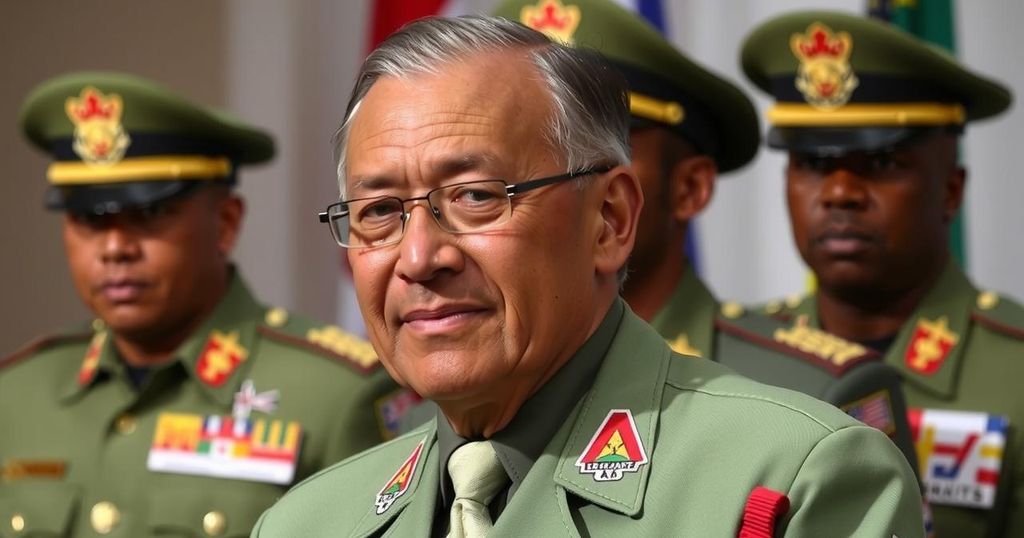Chad Holds Elections Amid Opposition Boycott and Allegations of Fraud
Chad will hold elections for legislative, provincial, and local positions amid a boycott by opposition groups, allowing pro-government candidates to dominate. The elections are framed as part of a transition from military rule, yet accusations of fraud and repression mar the process. Security threats from Boko Haram and past instances of electoral failures complicate the political landscape.
Chad is poised to conduct legislative, provincial, and local elections this Sunday, marking what the government has labeled as the concluding phase of a political transition initiated after three years under military governance. However, the elections face a significant boycott from opposition groups, which could allow candidates supporting Marshal Mahamat Idriss Itno—who assumed power following a military coup in 2021—to dominate the electoral outcome. Opposition leader Succes Masra emphasized the futility of participating, urging his supporters to abstain from voting, while alleging systemic electoral fraud and manipulation.
In a statement shared on Saturday, the opposition Democratic Party of the Chadian People (PDPT) reported the disappearance of over a thousand ballots destined for Bongor, alerting citizens about potential fraud practices employed by the ruling MPS party. Polling stations are set to operate from 6 am to 6 pm local time, accommodating an estimated eight million registered voters, overseen by a contingent of foreign observers and various political party representatives.
It is pertinent to note that security concerns persist due to ongoing attacks by the jihadist group Boko Haram in the Lake Chad region, alongside the conclusion of a military agreement with France, the country’s former colonial ruler, and allegations regarding Chadian involvement in the Sudanese conflict. Marshal Itno, who has characterized the elections as pivotal for the country’s democratic transition, ascended to power following the death of his father, Idriss Deby Itno, after a three-decade rule. The last legislative elections in Chad were conducted in 2011, with subsequent elections delayed due to security threats, financial strains, and the COVID-19 pandemic.
Moreover, the political climate in Chad has been increasingly marked by autocracy, with opposition figures highlighting incidents of government suppression during protests, including a deadly crackdown on demonstrations in October 2022. The ongoing strike by online journalists over governmental restrictions has led to a media blackout on election day, further complicating the transparency of the electoral process, as private media has chosen not to cover the elections without government subsidies.
Chad has been under military rule for over three years following a coup that resulted in the rise of Marshal Mahamat Idriss Itno. His leadership has faced claims of electoral fraud and increasing authoritarianism. The political transition was positioned by the government as a shift towards democracy, yet significant opposition exists, particularly after allegations of election rigging and repression of dissent. The context for the elections includes security challenges from Boko Haram, strained international relations, and past disruptions to the electoral process due to various crises.
In summary, the upcoming elections in Chad occur under a cloud of controversy and opposition boycott, raising critical questions about the legitimacy of the electoral process and the future of the country’s political landscape. With claims of orchestrated fraudulent activities and rising authoritarianism, the credibility of the transition towards democracy is significantly undermined. The situation remains precarious amid regional conflicts and internal dissent, casting long-term implications for Chad’s governance and stability.
Original Source: www.barrons.com




Post Comment